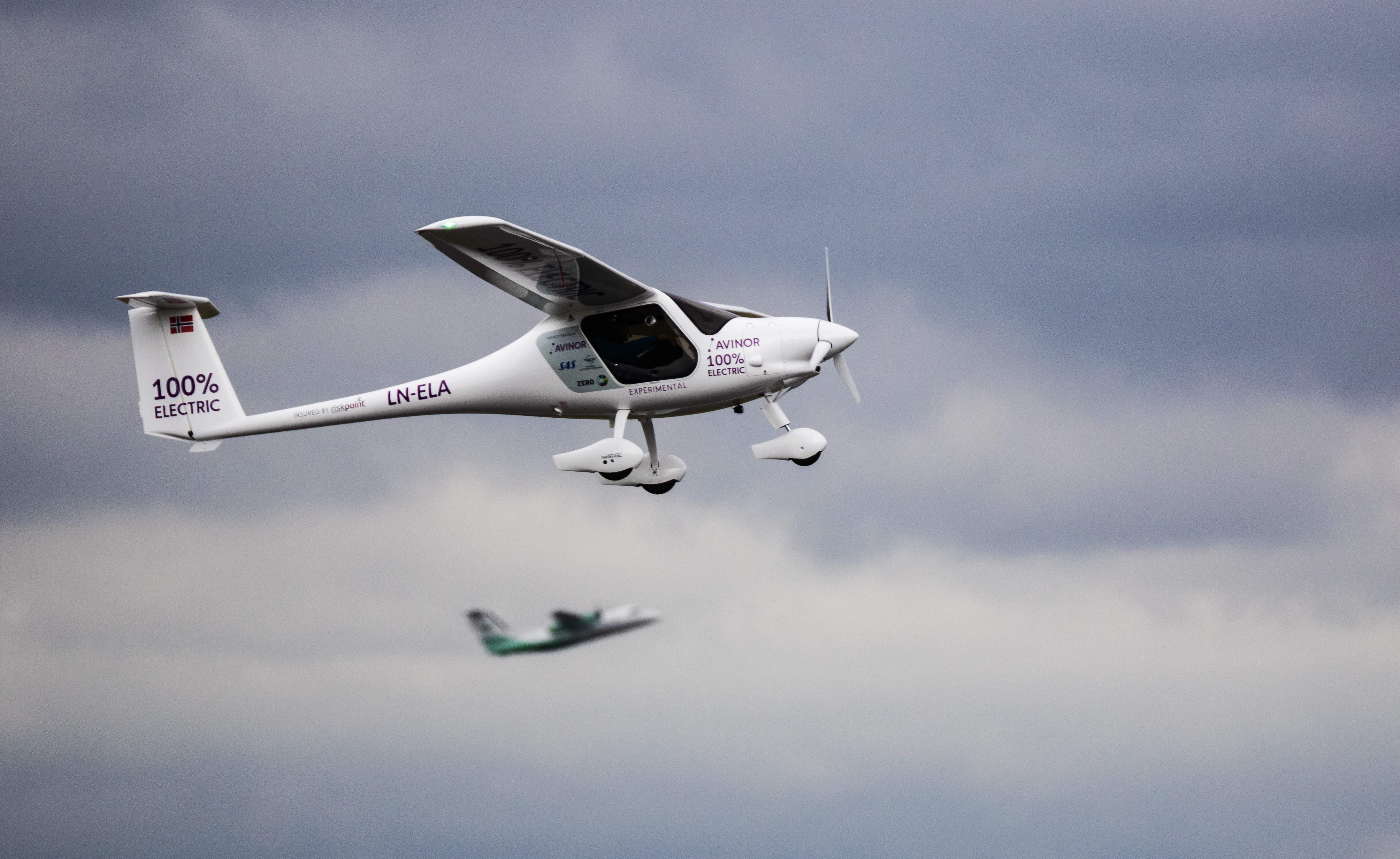The 'Tesla-loving' nation of Norway has already embraced electric cars, and now it's bidding to become a global pioneer in green aviation by creating a fleet of electric planes that could carry passengers within the next seven years

Norway’s Minister of Transport and Communications and Avinor’s CEO took part in Norway’s first electric-powered flight at Oslo Airport, piloted by Avinor's CEO Dag Falk-Petersen.
Electric planes could soon be flying over Norway’s skies after the country piloted a greener mode of aviation.
The Norwegian Government’s Minister of Transport and Communications Ketil Solvik-Olsen joined the boss of airport operator Avinor in boarding the Scandinavian country’s first electric-powered flight at Oslo Airport yesterday (Monday 18 June).
It now with hopes to have the first passengers flying in electric planes by 2025, with a longer-term plan to electrify Norwegian domestic aviation by 2040.
Avinor, a state-owned company that runs many of Norway’s airports, is developing the battery-powered aircraft technology alongside industry partners – and believes the short test flight will show the feasibility of pollution-free aviation.
Being home to some of the busiest flight routes in Europe, Norway wants to be the industry pioneer for electric planes.

Norway plans to become world leader in electric planes
As it bids to becomes the world leader in electric aviation, the objectives are for Norway to be the first country where electric-powered planes account for a significant share of the market.
Avinor CEO Dag Falk-Petersen, who piloted the inaugural flight in a two-seater plane, said: “At Avinor, we want to demonstrate that electric aircraft are already available on the market, as well as help make Norway a pioneer of electric aviation in the same way as the country has become a pioneer of electric cars.”

The country is already known as the Tesla-loving nation, where 52% of new cars sold in 2017 were electric or hybrid.
The Government has tasked Avinor with developing a programme for introducing electric planes in commercial aviation, and it is collaborating with project partners and airlines Widerøe, SAS, the Norwegian Association of Air Sports and climate foundation ZERO.
The first electric-powered plane took to the skies
Mr Falk-Petersen said electric planes will benefit a lot of frequent fliers, help reduce emissions and could be an cost-saving scheme.
“Along with energy-saving measures, the ongoing modernisation of aircraft fleets and the introduction of sustainable biofuel, electric aircraft can help to reduce total greenhouse gas emissions from Norwegian aviation in the coming decades,” he said.
“As electric engines cost much less to operate than current engines, this will result in lower prices for flight tickets.”
Avinor has no plans to charge landing fees for electric-powered light planes and will allow them to recharge at no cost until 2025.
Mr Falk-Petersen added: “The Norwegian short-leg domestic network is ideal for trialling the first commercial electric-powered flights, which are expected to have a limited range and capacity.”
The plane, made by Slovenian manufacturer Pipistrel, flies for up to an hour.
Stein Nilsen, CEO of regional airline Widerøe, said: “Today, we fly the smallest aircraft on the shortest routes, based on an aging technology that was developed in the 1970s.
“There’s been much development in the aviation sector, but not on the smallest aircraft.”


